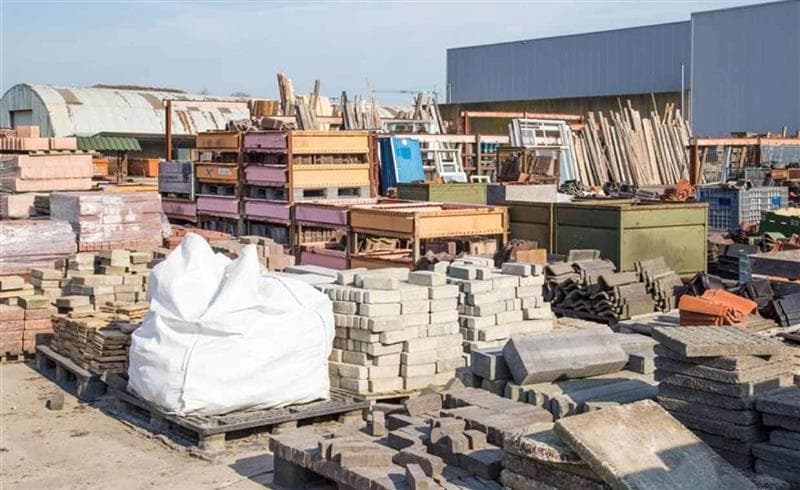
Table of Contents
Renovating your space is a big deal. Whether you’re redoing your kitchen, fixing a bathroom, or refreshing your entire home, the materials you choose can make or break the project. But here’s something many people overlook: your supplier matters just as much as the materials themselves.
You want someone reliable, with quality materials and fair prices. However, with so many options, how do you know which one to trust? Choosing the right partner is key, especially when sourcing construction supplies for residential or commercial projects.
In this article, we’ll walk you through what to look for, what questions to ask, and how to avoid common mistakes while finding building materials supplier. Read on!
Understand Your Renovation Needs
Before searching for a building materials supplier, it’s essential to understand the exact needs of your renovation. Whether you’re handling a personal home improvement or tackling commercial projects, the types of materials required can vary widely.
Some building projects need only basic items, while others may require structural materials, custom doors, garage doors, or exterior building materials. You also need to consider the scale of your renovation. Are you looking for supplies for a single room or sourcing materials for large-scale construction?
Knowing what you need helps narrow your choices. A good building materials supplier will meet the demands of both residential and commercial buildings, offering everything from standard fixtures to specialized construction elements.
Check Quality and Product Range

Once your renovation goals are clear, focus on the quality of materials offered. Your supplier should provide high-quality materials that meet building codes and match the standards required in today’s construction industry. This is true whether you’re sourcing materials for a minor update or a large commercial building.
During your search, look for a wide range of products. A supplier that offers a wide variety and selection of building supplies reduces the need to source items from multiple locations. This can help save time and ensure consistency throughout your project.
A strong product range often includes basic construction supplies and value-added components that enhance performance and durability. This could include insulation products, weatherproofing elements, and other accessories beyond the basics.
Look for Good Customer Service

Excellent customer service makes the renovation process much smoother. Whether you’re a homeowner or a professional contractor, you’ll want a supplier that listens, communicates clearly, and offers helpful solutions.
A supplier that serves both the professional market and do-it-yourself (DIY) enthusiasts should have staff who understand different levels of construction experience. They should be able to guide you, answer questions about building materials, and make solid recommendations based on your renovation goals.
Good customer service also includes transparency. Suppliers should be upfront about costs, lead times, stock availability, and delivery services. A helpful support team can keep your renovation on track when unexpected issues arise.
Read Reviews and Ask for References

It’s always smart to do some background research. Start with online reviews to understand past customers’ feelings about a particular construction materials distributor. Look for repeated complaints about late deliveries, missing items, or poor-quality materials.
You can also ask the supplier for direct references. Reliable suppliers will provide contact information for previous clients, especially those involved in similar construction projects.
Additionally, reaching out to construction companies or contractors in your area can help with validation purposes. They may have valuable insights into which suppliers have a strong reputation in the construction materials sector.
Evaluate Reliability of Building Materials Supplier
Reliability is vital in the construction world. So, before deciding, check how dependable the supplier is. Whether managing your own home renovation or overseeing commercial-grade construction tools for a business client, you need a supplier who delivers on time and in full.
Ask how often they run out of stock. Do they have systems in place to track orders and inventory? Do they provide real-time updates on deliveries?
A reliable supplier has experience serving different market segments while meeting the needs of construction material providers, firms, and businesses with varying supply requirements.
Visit the Store or Warehouse

Online photos don’t always show the whole picture. It helps to visit the building materials supplier in person whenever you can. Seeing the products up close lets you check their quality and how the supplier handles storage.
You’ll also get a feel for how the staff interact with customers. If they’re willing to walk you through product options, show you samples, or explain how specific materials compare, that’s a strong sign of good service.
Physical visits are crucial if you’re working on a large-scale renovation or commercial project. Seeing the materials up close can help you confirm their suitability for building projects.
Build a Long-Term Relationship
If this renovation is just the beginning, or if you plan to do more projects in the future, think long-term. Building a relationship with the right supplier means you’ll always have someone to turn to for advice, new ideas, and great deals.
Staying loyal to a trusted supplier often comes with benefits. You might receive discounts, faster service, or early updates on new construction supplies. So, once you find a supplier that meets your needs, keep in touch and continue building that relationship.
Ask About Returns, Warranties, and Support

Sometimes, renovations don’t go as planned. You might order more than you need or realize a material doesn’t fit your design. That’s why it’s essential to understand your supplier’s return policies and support system.
Ask about warranties. Are the materials covered for manufacturing defects? What happens if items are damaged in transit?
Suppliers who offer solid after-sales support build trust. If they help resolve issues without complicating the process, they’re likely a good long-term choice for future building material supply requirements.
Consider the Location and Delivery Options
Where your supplier is located plays a big role in efficiency and cost. A local construction materials distributor may offer faster delivery services and better flexibility for short-notice changes.
On the other hand, large distributors with several distribution centers can supply materials for multiple construction projects at once. This is especially helpful for builders managing different sites.
When researching possible partners, inquire about their logistics setup. Do they deliver to your area? What’s their lead time? A supplier with a reliable delivery schedule helps you avoid costly delays and keeps your renovation moving forward.
Conclusion
Finding the right building materials supplier doesn’t have to be overwhelming. With the above tips, you can make informed choices that support your renovation goals, whether you’re working on a minor home update or a large commercial construction project.
Remember, the best supplier understands your needs, offers a wide variety of high-quality materials, and provides reliable support throughout your project. Take time to research, ask questions, and build a relationship with a supplier who values trust, service, and long-term success.
Also Read: 14 Tips for Buying Building Materials for Your Dream Home!






























